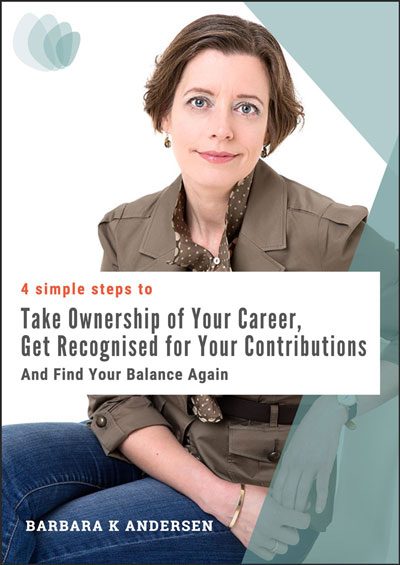Happy UN Career Podcast / Episode 7
Are You Ready to Take Action in Your UN Career?
Subscribe to the Podcast
Episode 7 / 20 October 2020
SHOW NOTES
Hello, and welcome to this episode which is all about taking action!
In all the episodes until now, I’ve offered you ways to reflect on what works and what doesn’t work in your career and work life.
And then I’ve suggested that you look for and decide on action points. Big or small.
So today, I’ll share some tips that will help you do exactly that: take action.
It might seem like there’s so much you could do or should do? But how do you prioritise? How do you find the time and resources for taking action?
You’re busy. I know! And I totally understand if it feels like you have enough on your plate. How can you possibly find time to do something new or different?
But the strange thing is that when something is important enough, you find time for it.
Or if it’s attractive enough. Or maybe just small and easy enough.
Remember when you’ve been in love? How suddenly you always had time and energy to see or call your loved one. Even if you were crazy busy with work. But, Barbara, you might say – that was hormones doing their work! Or that you were younger, maybe?
But still, somehow you managed to do more with the same amount of time. Because your priorities changed! And you felt a surge of energy, sure. But you can create that situation in other ways!
If you think I’m a bit far out here, I have another example that I think anybody who’s a parent will be able to identify with:
You get a call from the kindergarten. Your son had an accident on the playground. He’s bleeding from a small wound on his forehead and they think it’s best if he’s taken to the emergency room. Just to be on the safe side.
Until this moment you were totally absorbed with your work duties for the day and your long to-do list. Now, suddenly you have no problem changing your priorities.
There’s no question that you have to go to the emergency room. And you quickly prioritise what tasks can be dealt with by phone in the car, what can be handed over to a colleague – and what can simply be postponed or written off.
What happened? All your work tasks are the same. But your thinking around the tasks and your prioritisation changed.
You can make this happen yourself without accidents on the playground.
So, if you know that there are things you want to take action on for your own UN Career Project, I’ll give you 3 simple and concrete steps to follow:
Step 1: Set small, achievable goals
So, it’s time to define action points from everything you discovered in the last episodes. Make a list of things you know will make a positive influence on your career and work life.
Select a maximum of 3 things you’d like to take action on now. There may be several other important things you’d like to do, but you can’t do everything at once.
This point is very important. If you try to change 7 or 15 things at once you won’t succeed. You’ll be overwhelmed and there’s a big risk you’ll give up on the way. And then you’ll feel deficient and deflated. And have no energy to move on. Believe me – I’ve been there many times. There’s no reason to put yourself in that situation.
So, instead, select 1-3 things (depending of course on the complexity and time involved) that you want to start with.
And by all means, do look for the low hanging fruits. It’s always a good strategy to start with something that can give you quick success and feeling of progress. This will energize and inspire you to keep up with whatever it is you’re doing to create a happier career and work-life for yourself.
So, from the “What Drives You and What Drains You” exercise in episode 3– was there something that makes you happy in your work that you’d like to have more of? Is there a specific action you could take to implement that?
Or from the “Wheel of Life” exercise in episode 6, was there a specific action you could take to help you create more balance between the important elements in your work and private life?
Or was there one of the activities I mentioned in episode 5 (“Are You Feeling Stuck in Your Career?”), that would be helpful for you? For example:
- Creating a regular structure for finding and applying for vacancies, or
- Finding a mentor, or
- Activating and expanding your network?
Whatever the action points you chose are, make sure to write them down, so you get an overview.
And by the way, if you chose 3 things to work on, it can still be interesting to ask yourself, which of these 3 things will yield the most important result for you? Again, just to be clear on your priorities, if you’re pushed in terms of time and resources.
Step 2: Be specific
Make the action points very specific. The more specific you are when you define an action point or task, the easier it is for your brain to get started on the task. And the less overwhelming it seems.
An example could be the one I shared in the last episode about me needing to prioritise time to relax and have fun.
I knew that would be a nice thing to do in itself. But I also knew that it would help me reenergize and be more effective with my work. So, it was worthwhile seriously thinking about how to make that happen.
But just wanting more time to relax and have fun was too broad to be a real action point. It was much more helpful to think about in what concrete ways that I have fun.
Well, for example, there are a specific set of friends that I often laugh a lot with. Spending time with them is specific enough for this purpose. So, clearly, I should try to see these friends once in a while.
But doing something “once in a while” is also too unspecific for this purpose. What has helped with meeting my friends is that we have a typical day and time we meet (for example Friday after work).
Or that we plan the next date before we leave each other. Then it’s in the calendar and we don’t have to worry about it.
And once it’s in the calendar, we do it! And it’s always a good experience.
Some might think it’s a very rigid way to engage with friends that you have a “schedule”. But if you’re struggling to make time for something, it can help a lot to make it a recurring event. Then you don’t have to spend mental energy considering whether or not to do it. It’s decided already.
So often, a big part of feeling that we don’t have time for something is the weight of mental overload. Often, I find, it’s more the thought about writing a difficult email (or cleaning the house!) that weighs on me, rather than the actual task once I get it done. Maybe you recognize this?
Step 3: Plan time
So, when you plan, consider how much time do you need, specifically?
And how much time can you set aside? Can you spend 15 or 30 minutes a day? Or an hour every week?
If this feels too overwhelming still, ask yourself: what’s the smallest possible element you could start with?
So, could you set aside 1 hour a week to look for interesting vacancies and work on your CV and cover letter? Of course, if you want to do a serious application, you need to spend more than 1 hour, but if your CV is polished and up to date it will significantly speed up the process when you need it.
Or could you set aside 30 minutes a week to reach out to someone from your network that you haven’t been in touch with for a while? For example, Friday mornings at 8.00?
You know what I’m going to say! Consider finding someone who can help you prioritise your action points and make them really clear, specific and tangible, so you know that you will accomplish them.
Bonus Tips
- Measure what you do. You know this from your work already. What we measure gets done. Make a clear way of documenting and measuring how you do on your chosen action steps. It can be as simple as hanging a list on your wall and ticking off, every time you’ve taken action. That builds accountability and helps you prioritise the action you want to take.
- Get an accountability partner. I can hardly overemphasize the influence it can have to have an accountability partner. And this is something I use a lot to make sure I stay on course with my own progress. So, find somebody who you’ll be reporting to on a regular basis. Just the fact that you’re reporting on your progress will help you stay on track.
Finally, remember this question:
If you start now, what difference could you have made for yourself
and your career in 6 or 12 months?
I wish you lots of luck with your action steps.
Make them small and concrete so you can succeed!
What’s Next?
I’ve now hinted a few times that you might consider prioritising time to work on your CV and keep yourself updated about vacancies. Even if you’re happy in your current job!
In the next episode, I’ll delve into the CV and job-hunting sphere.
And I’ll probably have some tips for you too!




